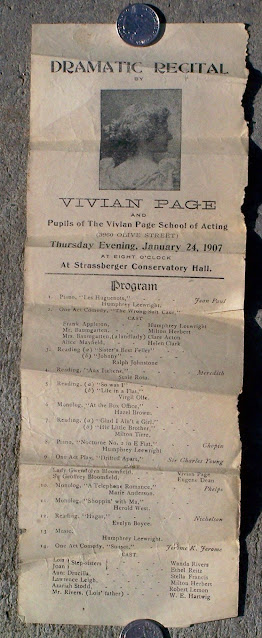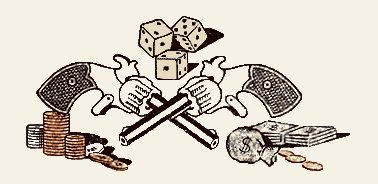ell," said the Jeweler, "this is a snide auction watch."
It
is not known for certain if Soapy Smith was operating any of his "mock
auction houses" in Denver in 1882, but the methods are the pretty much
the same. It could be one of "Big Ed Chase's operations, or even "Doc" Charles L. Baggs' place, as he was the "bunko boss" in Denver at the time. Below is the transcribed newspaper article from the Denver Republican (February 11, 1882) describing one of the early "mock auction houses" that prospered for decades in Denver.
A 3-KARAT WATCH.
—
How a Young Man “From the Country” Was Taken In — One of Many Similar Cases.
—
“A young man from the country” walked himself into one of the cheap jewelry auction shops on Larimer street yesterday, and was induced to buy a gold watch. The “ticker” was a fair-looking hunting case, warranted to be gold, and had an Elgin movement. It was a taking piece of property and sold for the wonderfully small sum of $24. The young man bought and received the following guarantee:
Denver, Colorado February 10th 1882.
Mr. H. A. Taylor,
Bought of H. Simon Auction and Commission House, 371 Larimer street, red front.
No. 1,319.
One solid gold watch fortwenty-four dollars, and I guarantee the above-mentioned to be solid gold cases and in good running order for two years. H. Simon.By and by it dawned upon the young man that maybe he had been swindled, and meandering into Ingalls’ jewelry store he submitted his "solid-gold" ticker to have judgement passed upon it. "Well," said the Jeweler, “this is a snide auction watch. It is worth at the utmost from $15 to $18. The case is a gold that runs about three karats fine and the works are the cheapest Elgin procurable." The jeweler was asked to test the case with acid. On applying the liquid it sizzed, hizzed and boiled and forever tarnished that "solid-gold" case. The young man left the jeweler's office with blood in his eye, but up to a late hour last night no murder had been committed.
It will be observed that the auction man made no false representations. It is a “solid gold” watch and the watch is also “in good running order for two years.” The only safety the public has is to deal with reputable Jewelers.—
View the following day's more detail article on this case: April 2, 2021
Below is cartoon showing the standard path of a victims lesson in dealing with one of these establishments. Do click on the image for an enlarged, readable view.
 |
(Click image to enlarge)
Auction House: pages 15, 43, 75-76, 88, 90, 92, 120, 129-32, 138, 162-63, 180, 188, 190-91, 242, 294, 360, 421-22.
"If ye must bette, at least bette upon a sure thinge."
—Anonymous
"… and have we got a sure thinge for you!"
—Jeff Smith





































